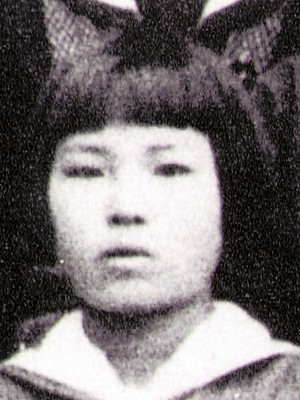THE ASAHI SHIMBUN
April 17, 2022 at 07:10 JST
Police are trying to help former gangsters assimilate into society and stay away from trouble by seeking cooperation from the banking industry that has slammed shut its doors on underworld figures.
The National Police Agency in February provided written guidelines to prefectural police departments on procedures to enable former gangsters, who have severed all ties with organized crime, to open bank accounts.
The NPA, through the Financial Services Agency, also notified financial institutions, from megabanks to community banks, about the assistance measure for former mobsters.
Lacking a bank account hampers the social reintegration of former gangsters because, for example, they have difficulties receiving automatic deposits of their wages.
The NPA’s move is intended to encourage as many gangsters as possible to quit their yakuza groups and get reintegrated into society.
“It is a key element of anti-gang measures to allow those who have left yakuza groups for good to open their own bank accounts,” a senior police officier said. “We hope to work steadily and do whatever we can do as a police force.”
The decision on opening accounts is ultimately up to financial institutions, which have their own anti-gang provisions.
In general, they have rejected any request from gangsters to open accounts that could end up being used for illegal activity by organized crime groups.
Gangsters who have left their syndicates have also had a tough time opening accounts.
Financial institutions use their own databases and other information to determine whether an applicant should be considered a gangster.
Some institutions have provisions stating that former mobsters should still be regarded as gangsters over the five years after they left their yakuza groups.
POST-GANG REQUIREMENTS
Those eligible for police assistance in setting up bank accounts must satisfy a number of requirements, in addition to vowing to cut all ties to organized crime groups.
For example, they must be employed by a “cooperating business.” These companies have agreed to hire former yakuza with the help of police or a “center for removal of criminal organizations.”
Each prefecture has such a center set up under the anti-organized crime law.
The NPA guidelines say police will notify a financial institution when a former gangster plans to open an account there. Police will also respond to inquiries from financial institutions about an applicant’s possible ties to organized crime.

Officials of the cooperating business and the local gangster removal center will accompany the former mobster to the financial institution for the application for a new account.
If an account is opened, police and the gangster removal center will keep watch to see if the former gangster gets pulled back into a life of crime.
Police may also reply to inquiries from financial institutions about the latest status of their new clients.
Under an NPA chief’s instructions to “annihilate” yakuza groups, police around the country have strengthened their crackdowns against the syndicates. One big part of the plan is to encourage gangsters to abandon organized crime and reintegrate into society.
There were about 25,900 members and quasi-members of organized crime groups around Japan as of the end of 2020, down more than 70 percent from three decades earlier.
Police and gangster removal centers helped around 17,500 gangsters leave their groups between 1992, when the anti-organized crime law took effect, and 2020. Police and other parties helped 1,276 of them land jobs. There are around 1,500 cooperating businesses, officials said.
A POSITIVE STEP
A criminologist welcomed the measure to help them open bank accounts.
“This is a major, positive step to support the social reintegration of former gangsters,” said Noboru Hirosue, a part-time researcher with the Ryukoku University Criminology Research Center.
“Those who are quitting yakuza groups will have clearer prospects for social rehabilitation with the clearer standards on letting them hold bank accounts.”
Hirosue, 51, who is well-versed on the issue of rehabilitating former gangsters, said any person denied an account would face restrictions on receiving wages, renting properties and subscribing to a cellphone service.
If former gangsters explain that their criminal past is the reason they cannot open an account, potential employers could decide to revoke their job offers.
Yakuza groups sometimes cite these circumstances in trying to dissuade members from leaving, Hirosue said.
When former gangsters find it difficult to make ends meet, they could resort to phone scams and other crimes, or return to their yakuza organizations.
“The latest measure will likely deter such moves to a certain extent,” Hirosue said.
But he also said more could be done, noting that police assistance is available only to former gangsters who will be employed by the cooperating businesses.
“It is not easy for former gangsters to find jobs in the first place in geographical areas where there are few cooperating businesses, and that will limit opportunities for them to open bank accounts,” Hirosue said. “It is essential to ensure there are more cooperating businesses.”
(This article was compiled from reports by Kosuke Tauchi and Hayato Kaji.)




















A peek through the music industry’s curtain at the producers who harnessed social media to help their idols go global.
A series based on diplomatic documents declassified by Japan’s Foreign Ministry
Here is a collection of first-hand accounts by “hibakusha” atomic bomb survivors.
Cooking experts, chefs and others involved in the field of food introduce their special recipes intertwined with their paths in life.
A series about Japanese-Americans and their memories of World War II